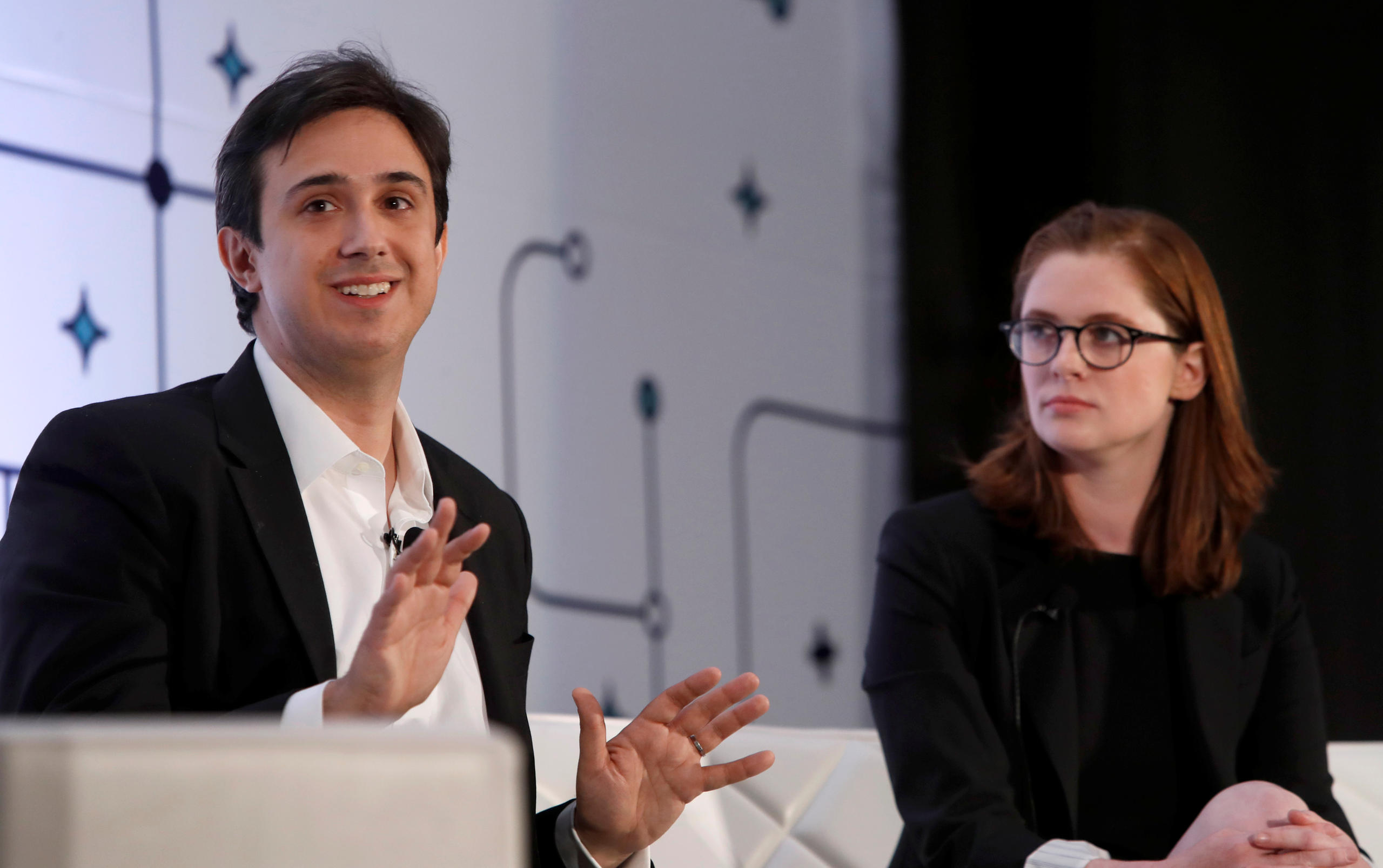Lawyers circle over Tezos Foundation dispute

Allegations of corporate misconduct surrounding the new cryptocurrency Tezos have brought the threat of class-action lawsuits in the United States. The fall-out centres on the Zug-based Tezos Foundation that houses $400 million (CHF396 million) of publically-raised funds.
A week ago, the founders of Tezos, Arthur and Kathleen Breitman, accused the foundation’s president, Johann Gevers, of “an attempt at self-dealing, misrepresenting to the council the value of a bonus he attempted to grant himself.” Gevers has rejected the allegations as lies and a smear campaign.
Gevers was threatened with suspension, with the Breitmans calling for his permanent removal from the foundation. The cryptocurrency Tezos is so new that it is not even in operation yet, but futures options trading on derivatives markets took a huge tumble on news of the row.
“Any time you see senior management figures at a well-financed organisation trading accusations, it is going to draw legal attention,” Joel Fleming, partner at the Boston-based Block & Leviton law firm told swissinfo.ch. The law firm has issued a public appealExternal link for investors to come forward if they feel damaged by the controversy.
Other US law firms are more aggressively campaigning for class-action lawsuitsExternal link on behalf of aggrieved investors. And this may be a path that Block & Leviton will follow.
“We have successfully made contact with people who have given us facts that are not in the public domain. Our preliminary investigations lead us to believe that there may have been some real misconduct and that investors have been treated badly,” said Fleming.
He added that between 50 and 100 Tezos investors have already been in touch with his office. Fleming dismissed the notion that legal action is premature at this stage.
Legal battle looms
Tezos Foundation is one of many Swiss-based bodies that have been set up to house and spend a significant portion of the billions raised by initial public offerings (ICOs) this year. ICOs are a new craze that raise money from the public in crowd funding for cryptocurrency or blockchain start-ups.

There have been concerns that the growing ICO industry is spiraling out of control beyond the reach of regulators. Last month, Switzerland’s financial regulator Finma closed down a fraudulent cryptocurrency and said it is investigating 11 other suspicious cases. It followed this up by announcing an investigation into the ICO business in Switzerland.
“The ICO space is vulnerable to fraud and self-dealing,” said Fleming. “It has thrown up a lot of the red flags that we look for in traditional companies. ICOs appear to be designed to evade regulations that are in place to protect investors. That is of great concern to us.”
“Blockchain has potential to be of real value to a lot of people, but it could also attract a lot of bad actors or people looking to make a fast buck.”
In addition to working out which specific organisation or individual to target with a potential lawsuit and issues of jurisdiction, lawyers may also test whether ICO tokens are securities or not. ICOs in general, including Tezos, have avoided promising any returns for investors buying their tokens. This is to avoid falling under of US Securities and Exchange (SEC) regulations.
But referring to a landmark 1946 Supreme Court ruling (SEC vs HoweyExternal link), Fleming said US law gives a wide interpretation to the definition of a security. “There is a broad reading of what a security is, even investments that lack some of the features of a traditional security, such as a stock or bond;” he said.
The cryptocurrency start-up Tezos raised $232 million (CHF230 million) worth of bitcoin and ether denominated funds in a few days this summer during its crowdfunding ICO. Most of these funds went to the Tezos Foundation, which was tasked with spending it on building the project. The value of funds has since risen to around $400 million on the back of the steep appreciation of bitcoin and ether.
The foundation was set up in canton Zug, Switzerland, to separate the funds from Tezos’s founders, Arthur and Kathleen Breitman, who now head the connected company Dynamic Ledger Solutions (DLS) in the US.
On October 18, the Breitmans issued a public statement accusing the foundation of incompetence by falling behind in its task of getting Tezos up and running. The full launch of Tezos was expected by the end of this year, but has now been put back to February.
But more damagingly, the statement accuses the foundation’s president, Johann Gevers, of sending misleading messages about the size of a bonus he was to be awarded. In an emailed message to swisinfo.ch, Gevers denied the charges.
“As you can imagine, I am extremely disappointed by the dishonest, immoral, and destructive behaviour of certain parties – and how this impacts the entire ecosystem (not to mention my own reputation, which I have built up through many years of extremely hard work),” he said.
“In addition to founding the Tezos Foundation and paying the legally required founding contribution of CHF 50,000 from my own pocket, I also contributed a very large further amount to the Foundation – several times larger than the total amount put in by the Breitmans from 2014 to the present. I am personally liable with all my assets if something goes wrong at the Foundation – unlike the Breitmans, who carry no liability at all.”
Gevers added that he has complained to the Swiss Foundation Supervisory Authority about an allegedly illegal plot to oust him from the foundation.
According to Bloomberg, Tezos futures options plunged some 60% on derivatives markets on news of the row.

In compliance with the JTI standards
More: SWI swissinfo.ch certified by the Journalism Trust Initiative











You can find an overview of ongoing debates with our journalists here . Please join us!
If you want to start a conversation about a topic raised in this article or want to report factual errors, email us at english@swissinfo.ch.